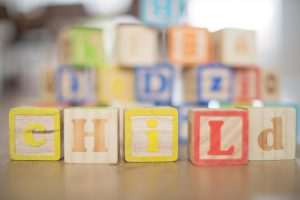
The Early Years Foundation Stage is the period of education from birth to 5 years. We recognise that children starting at Huncote have varied previous experiences from their pre-school/nursery settings and their home life too.
INTENT
“We want the curriculum we teach the children at Huncote Primary to be creative and inspiring, stimulating a life-long love of learning; whilst preparing them academically, socially and emotionally as best we can for the challenges of modern life, now and in the future.” Huncote Primary School Website, September 2021
Our intentions for the children are:
- To create a happy, safe and nurturing environment where children develop their independence as learners.
- To provide a curriculum which is exciting and motivates children to love learning and encourages children to ask their own questions.
- To create an environment where children develop resilience, friendships and positive relationships.
- To ensure that learning is accessible for all and that children’s individual progress is valued.
- To provide a stimulating indoor and outdoor environment where children safely explore risks and challenge their own learning.
- To work closely and collaboratively with parents.
- To effectively prepare children for the next stage in their school life.
IMPLEMENTATION
We follow the Early Years Statutory Framework which was updated in September 2021. This Framework specifies the requirement for learning and development in the Early Years and provides prime and specific areas of learning we must cover in our curriculum. All areas of the EYFS curriculum are followed and planned for to ensure there is a broad, balanced and progressive learning environment and curriculum.
Prime Areas
- Personal, Social and Emotional Development
- Physical Development
- Communication and Language Development
We recognise that Speech and Language support is ‘key’ and we run the ‘NELI’ program as an intervention to support children in this area.
Specific Area
- Literacy
- Mathematics
- Understanding the World
- Expressive Arts and Design
Children in EYFS learn by playing and exploring, being active, and through creative and critical thinking which takes place both indoors and outside. Our outdoor areas are used all year round and in most weather conditions. We ensure activities support the Characteristics of Effective Learning to ensure learning takes place. These are:
- Playing and Exploring – children investigate and experience things, and have a go;
- Active Learning – children concentrate and keep on trying if they encounter difficulties, and enjoy achievements;
- Creating and Thinking Critically – children have and develop their own ideas, make links between ideas and develop strategies for doing things.
A vital aspect in the development of essential knowledge and skills is the use of continuous provision. This means that children are using and developing taught skills throughout the year on a daily basis. Continuous provision practice and principles begin in EYFS and support children to develop key life skills such as independence, innovation, creativity, enquiry, analysis and problem solving. During the school day, children will have an opportunity to work independently, work collaboratively with their friends and with members of staff.
The children are taught the skills required in the EYFS through Termly topics which link to countries/places and weekly themes, which are coherently planned to build upon the children’s current knowledge and understanding by a cumulative sequence of lessons. The pupils are encouraged to wonder and ask questions about what they are learning.
We regularly assess where the children are, using checkpoints linked to ‘Development Matters’ and then ensure our planning, adult interaction and learning environment; including continuous provision, supports children to reach their next steps. We also include interventions for groups or individuals if and when necessary.
Parents are informed of weekly themes through Class Dojo and are provided with ‘Things to do at home’ tasks. Through the use of Class dojo, parents also see learning that has taken place with regular photos. We provide two parents evenings a year to talk about how their child is doing and what we will be doing next. We also provide a phonics/reading workshop which explains how parents can support their child at home.
IMPACT
We strive to ensure that our children’s progress across the EYFS curriculum is good from their varied starting points. We also strive for children to reach the Early Learning Goals at the end of Reception and to be at least in line with National Expectations.
Through the delivery of a well-planned, interesting and challenging curriculum we aim that the pupils will leave the Early Years Foundation Stage as independent learners, with transferrable skills needed to start Key Stage One. This will be measured at the end of Reception as to whether the pupils have achieved a Good Level of Development.
We aim that our pupils will leave our Foundation stage ready for the next stage in their education and ready for year 1 by:-
- Having good personal, physical and social skills.
- Enjoying, listening attentively and responding with comprehension to familiar stories and rhymes
- Demonstrating positive attitudes to learning through high levels of curiosity, concentration and enjoyment. Children will listen intently and respond positively to adults and each other.
- Being resilient learners who are keen to learn and are proud of their achievements.
- Asking questions about the world around them
- Using their phonics knowledge to read accurately with increasing speed and fluency.
- Understanding and using early numbers
The impact of our curriculum will also be measured by how effectively it helps our pupils develop into well rounded individuals who embody our values and carry with them the knowledge, skills and attitudes which will make them lifelong learners.
| Title | Size | Download |
|---|---|---|
| DRAFT EYFS Policy (1) | 238.19 KB | DownloadPreview |